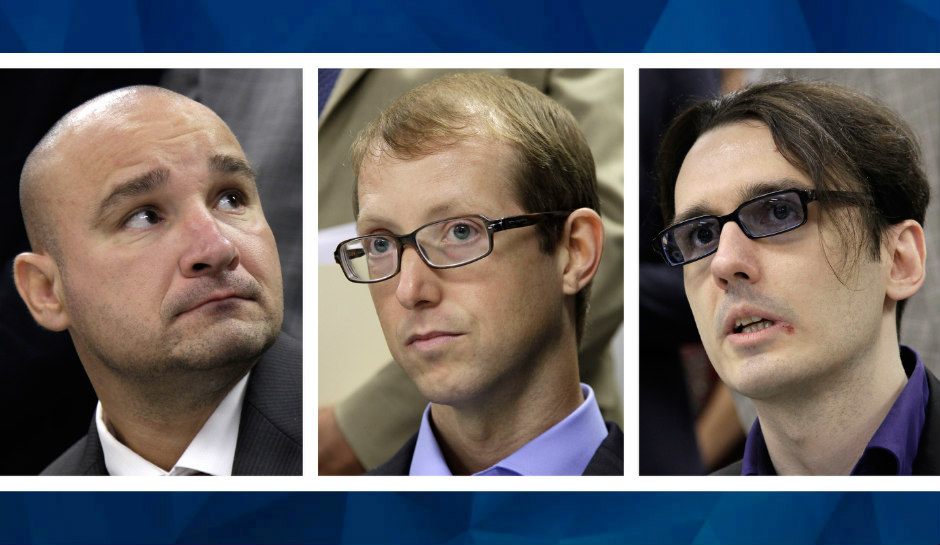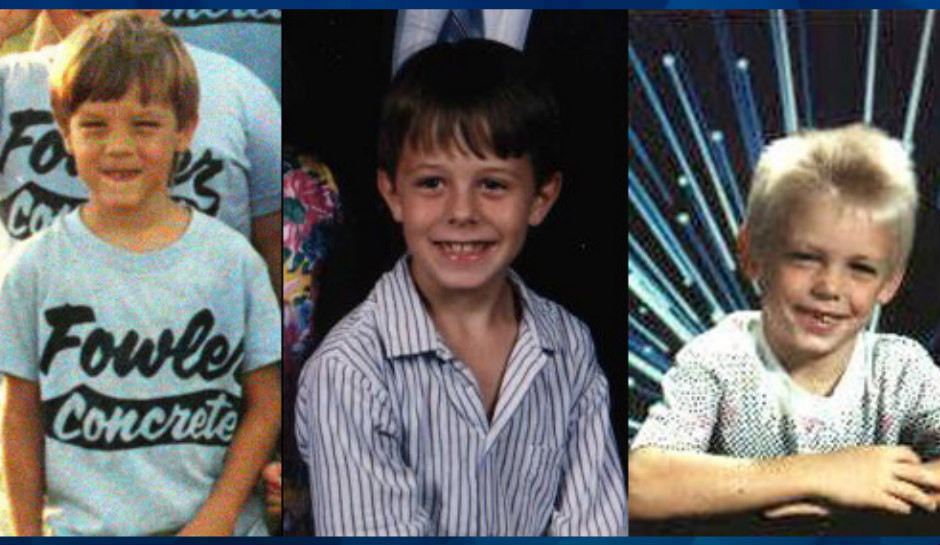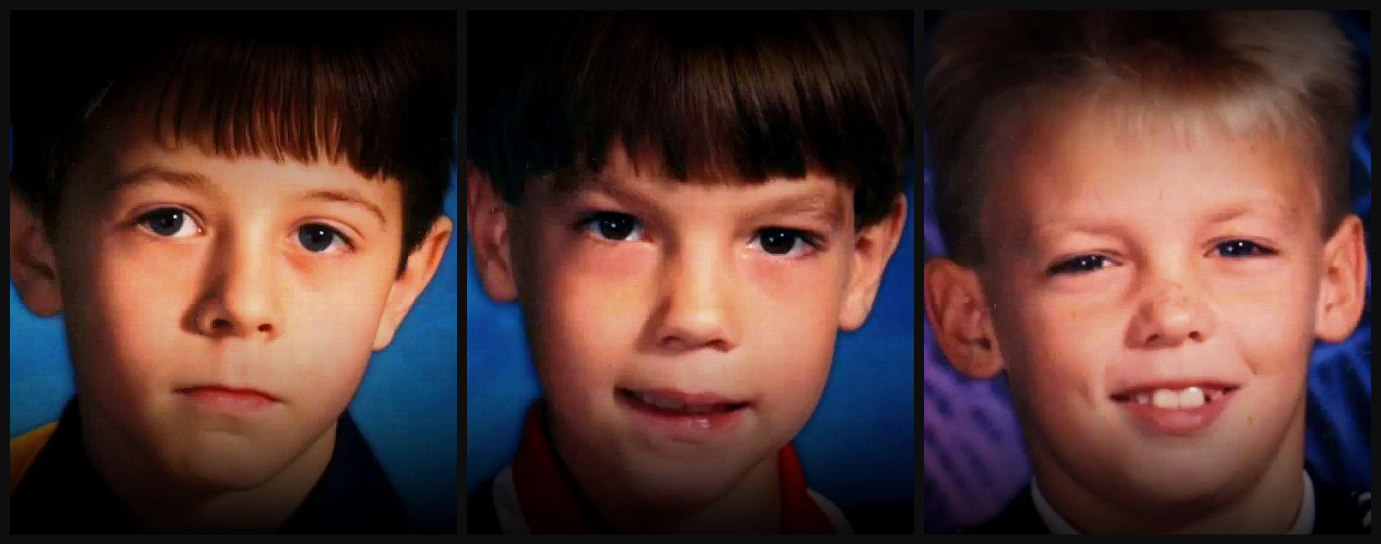For years, the stepfather of one of the three children killed in West Memphis, Arkansas, has maintained his innocence, despite public outcry to investigate him.
During a special presentation at CrimeCon 2022 Las Vegas, former New York State prosecutor Jim Clemente joined “Truth & Justice” podcast host, Bob Ruff, and investigative journalist, George Jared, to take a deep dive into a conversation Jared previously had with Terry Hobbs. Hobbs was the stepfather of Steven Branch, one of the boys found murdered in 1993, in West Memphis, Arkansas.
As CrimeOnline previously reported, Damien Echols, along with friends Jason Baldwin and Jesse Misskelly, were convicted of murder in 1994, in connection with the murders of Chris Byers, Michael Moore, and Steven.
Misskelly, who has a low IQ, reportedly gave detectives a false confession which helped a jury convict the three of murder. Misskelly later recanted and claimed he was tired, ready to go home, and said what the detectives wanted him to say.
In 2011, the defendants were released from prison by accepting an Alford Plea, which allowed them to maintain their innocence and get out of prison, However, the plea didn’t clear their convictions and all three men still have a murder charge on their record, despite their release from prison.
In Jared’s interview with Hobbs, one of the biggest red flags, according to Clemente, was that Hobbs waited until around 9 p.m. to contact the police and report the child missing, despite no one seeing Steven for hours.
When Hobbs finally contacted the police, he did so from a payphone, even though the boy hadn’t returned home at 4 p.m. as instructed, and neither had Christopher or Michael.

Steven’s mother, Pamela Hobbs, worked a shift at the Catfish Island restaurant the day her son vanished. Hobbs, who dropped Pamela off at work at around 4:30 p.m., picked her up at approximately 9 p.m. and walked straight to a payphone to report the boy missing.
Jared: “When they [the police] met you at the restaurant, was it just closer to meet you there as opposed to going to the neighborhood?”
Hobbs: “That’s where we called them from, so we knew they would be coming up somewhere near there.”
Clemente said the first place a child would likely return to is home. According to Clemente, suspects who have something to hide, such as evidence, or signs of abuse at the home, will not want police to search their residence and will attempt to put distance between themselves and where the abuse took place.
“He walked into the restaurant and went directly to the payphone. He did not say anything to me. He did not tell me who he was calling, and he did not tell me that Stevie was missing,” Pamela previously told investigators.
“Terry did not tell me who he was calling until he’d completed the phone call and came out to the car. Terry told me at that time (sometime after 9:00 p.m.), that he had called the police to report that Stevie was missing. I understood that Terry had not previously called the police to report that Stevie was missing.”
Also during the interview, Hobbs said he still wants to know why someone would kill the boys. Yet, when Jared asked about the evidence possibly being tested in the future, Hobbs said he was against testing anything else and as far as he was concerned, the case was solved when Echols, Misskelly, and Baldwin were arrested.
Clemente emphasized that someone who wants to know why the children were killed would likely encourage any and all evidence testing, as it’s one step closer to understanding the heinous murder.
Currently, Hobbs has not been charged with anything related to the murders. It remains unsolved in the minds of those who feel the West Memphis Three defendants are innocent.
In March 2022, Damien Echols said in a tweet that he’ll be back in court on June 23 with his law team as they try to get access to DNA, found in the case evidence, to a lab for testing.

“After 18 months Echols’ was informed that the evidence was likely not available, but after a state court order, Echols’ team was invited to the West Memphis Police Department to review what evidence remained. What they discovered was a very organized, catalogued and intact body of evidence,” a group working on the case previously wrote.
The group also stated that Echols submitted a FOIA request over 18 months ago, but the request went unanswered, which is a “violation of Arkansas state law.” Echols ultimately ended filing a lawsuit against the police department.
Echols’ lawyer, Patrick Benca, reviewed evidence earlier this year that was thought to have been lost. The West Memphis Police Department and other officials are being accused of stonewalling the release of the evidence for over a year and informing Echols’ team that the evidence was lost or destroyed.
According to Fox 13 Memphis, Benca previously said the evidence was intact and they plan to “move ahead and test this evidence using the latest DNA technology available to hopefully identify the real killer(s) of the three children in 1993 and exonerate Damien Echols, Jason Baldwin, and Jesse Misskelley.”
Echols specifically wants the shoestrings used to tie up the victims to be tested at a California lab that utilizes new technology to extract DNA from evidence.
“The only person whose DNA would be in that ligature is the person who tied the knots,” Echols said.
If Echols is successful in court, the DNA testing process will likely take months.
Check back for updates.
For the latest true crime and justice news, subscribe to the ‘Crime Stories with Nancy Grace’ podcast.
[Feature Photo: Murder victims Chris Byers, Michael Moore and Stevie Branch/UMKC School of Law]



